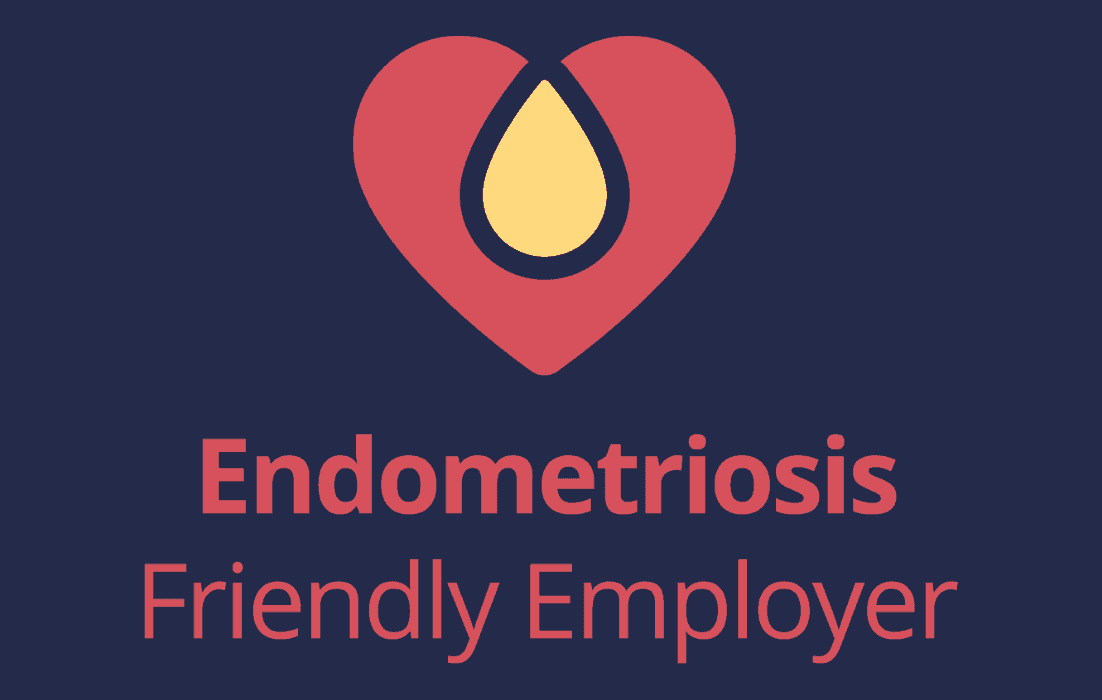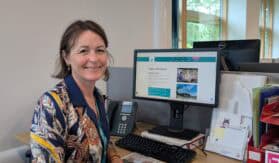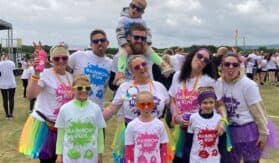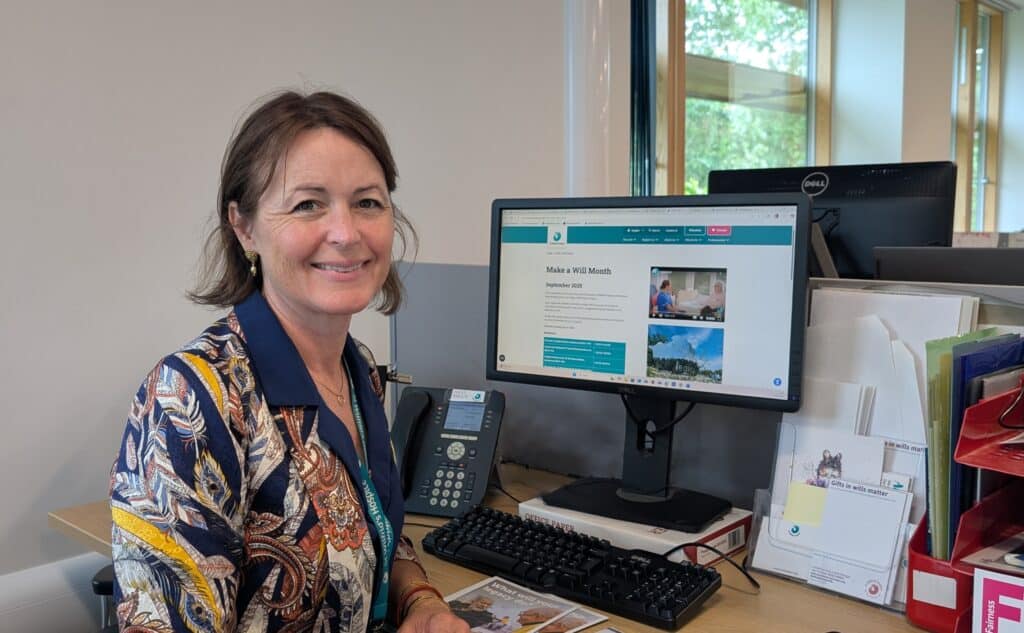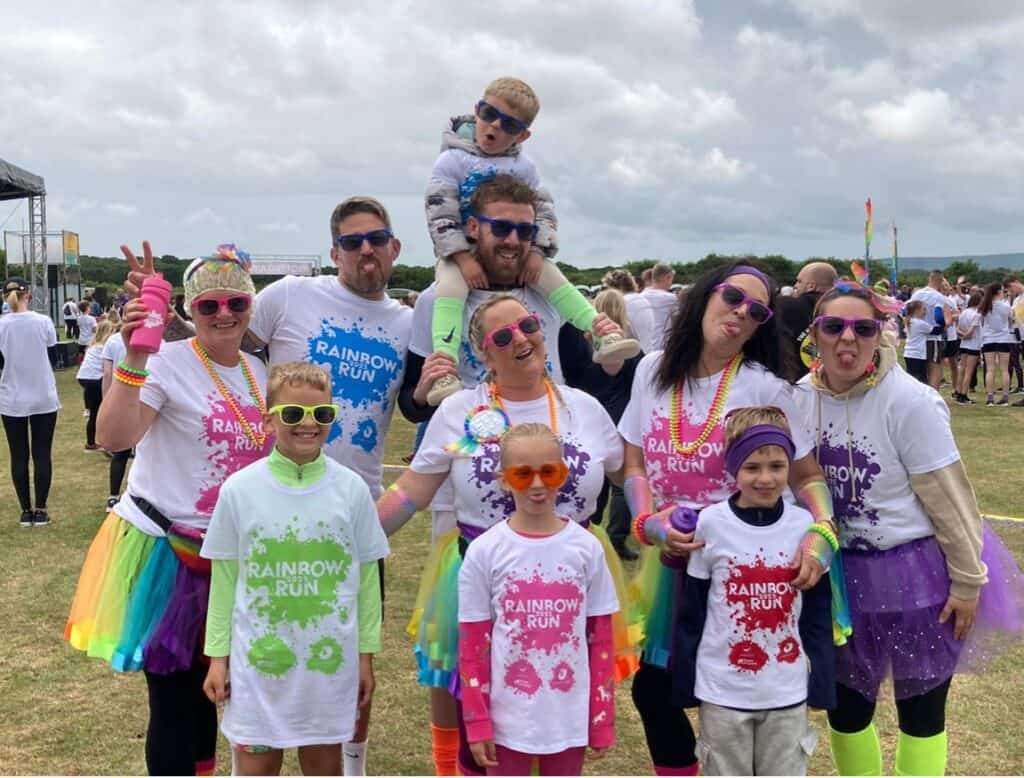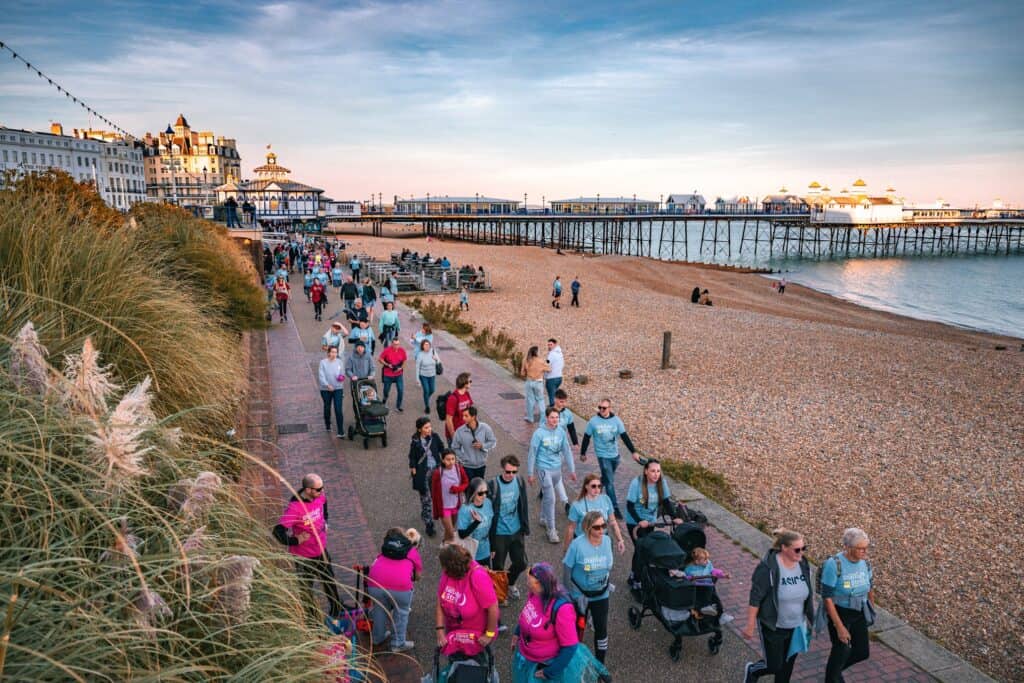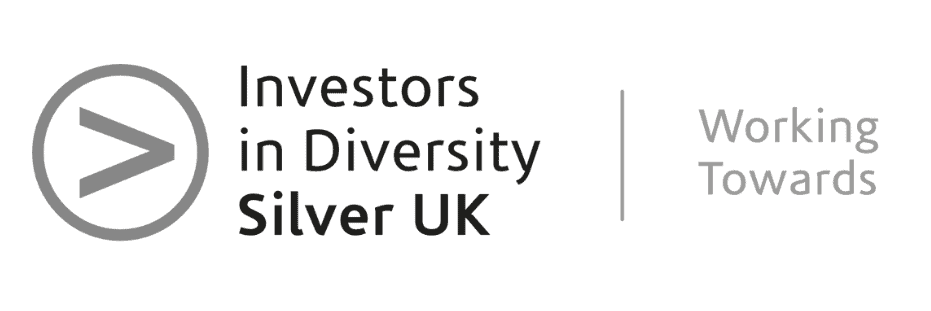St Wilfrid’s Hospice is an Endometriosis Friendly Employer!
Endometriosis is a long-term condition where tissue similar to the lining of the womb starts to grow in other places, such as the ovaries and fallopian tubes. In the UK, around 1.5 million women and those assigned female at birth are living with endometriosis.
St Wilfrid’s Hospice is proud to have become an Endometriosis Friendly Employer with Endometriosis UK. This means that we are working together to breakdown taboos, raise awareness and support our employees with endometriosis.
With March being Endometriosis Action Month, our Head of HR, Georgina has kindly shared her own personal story.
‘My journey with endometriosis began in the late 90s. I first went to the doctors’ after repeatedly experiencing abdominal and pelvic pain and over the next three years I underwent various tests. When these all came back normal, I was told by my GP that it must be irritable bowel syndrome (IBS). I was given a leaflet and that was that. I suffered frequently over the next few years, and due to the psychological effects of constant pain, I was diagnosed with depression and prescribed anti-depressants.
‘Throughout my two pregnancies in 2004 and 2007 I didn’t suffer with any pain. I had a wonderful, pain-free, six years thinking that my pregnancies had somehow cured my IBS, but the pain eventually returned and I was put back on painkillers and strong anti-inflammatories. This continued through to 2014 when the strength of painkillers was increased.
‘I continued to manage on a cocktail of medication until 2016 when my menstrual cycle became unmanageable in addition to the pelvic pain. I went back to my doctor who referred me for another ultrasound scan. The scan revealed blood in my pelvic cavity and the Sonographer asked if anyone had ever mentioned endometriosis to me. I had never heard of it!
‘Following the scan, I was referred to the Gynaecology Team. I had done my own research on endometriosis, finding out as much as I could about it and the symptoms, and it just fit! By this point, the pain was so severe that it would make me sick, and I was unable to leave the house for days at a time.
‘In late 2016 I underwent a laparoscopic investigation to look for endometriosis. I was nervous but relieved it was being looked into and taken seriously. After the procedure the Gynaecologist was quite dismissive and told me he had found an insignificant amount of endometriosis but nothing that would be causing abnormal bleeding or the pain I claimed I was experiencing. I was devastated when they discharged me and started to question if it was all in my head, or maybe I was making too big a deal out of it.
‘I went to my GP again the following year. I was still taking a lot of medication and I was so fed up with it all that I asked for a hysterectomy. Once again, I was referred to the Gynaecology Team, but this time I saw a different consultant. Right from the outset this experience was different and such a change from how I had been treated in the past. He went through all my symptoms with me and agreed it was very likely endometriosis.
‘In 2018 I was put into a medical menopause to see what treatment may be beneficial to me. This meant having a slow-release implant injected monthly for a minimum of six months. This course of treatment greatly improved my symptoms and on this basis my consultant agreed for me to have a hysterectomy with bilateral salpingo-oophorectomy, this meant removing my ovaries and fallopian tubes along with my uterus.
‘I underwent the surgery in late 2019. I was told I would likely be in theatre for about an hour to 90 minutes, however it ended up taking nearly five hours. Once in theatre it was discovered I had severe endometriosis and significant scarring, which took a considerable time to remove. Following my recovery, I asked the consultant about my original IBS diagnosis and was told it is extremely unlikely that I have ever had it!
‘It took 19 years to diagnose endometriosis from my first visit to the doctors. It has been a long process and I have often felt alone, angry and despairing. I am now fully recovered from my hysterectomy and my endometriosis is under control for the time being, but I live with the knowledge that it could come back at some point in the future.
‘I am very lucky to have great family and friends, but it is hard to explain the impact of an unseen chronic disease, and this can feel very isolating. I joined a support group and knowing I’m not the only person to go through this is comforting.
‘Throughout my journey, I have worked for seven different organisations with varying degrees of support. When you have a disease such as endometriosis you often find yourself having to explain what it is, what the symptoms are and what support you might need, and each time you get a new manager you have to explain it all over again. It’s exhausting!
‘I have worked for St Wilfrid’s Hospice for four years now and the support I have received during this time has been amazing. I have been able to work from home when my symptoms prevented me from attending the workplace, they accommodated eight weeks off following my hysterectomy and a phased return to work allowing for complete recovery. By both raising the profile of endometriosis within the workplace and becoming an Endometriosis Friendly Employer, others can feel confident of a compassionate and understanding response when speaking to their manager and/or the HR Team.’
If you would like to find out more about endometriosis and the support available, please visit endometriosis-uk.org.

